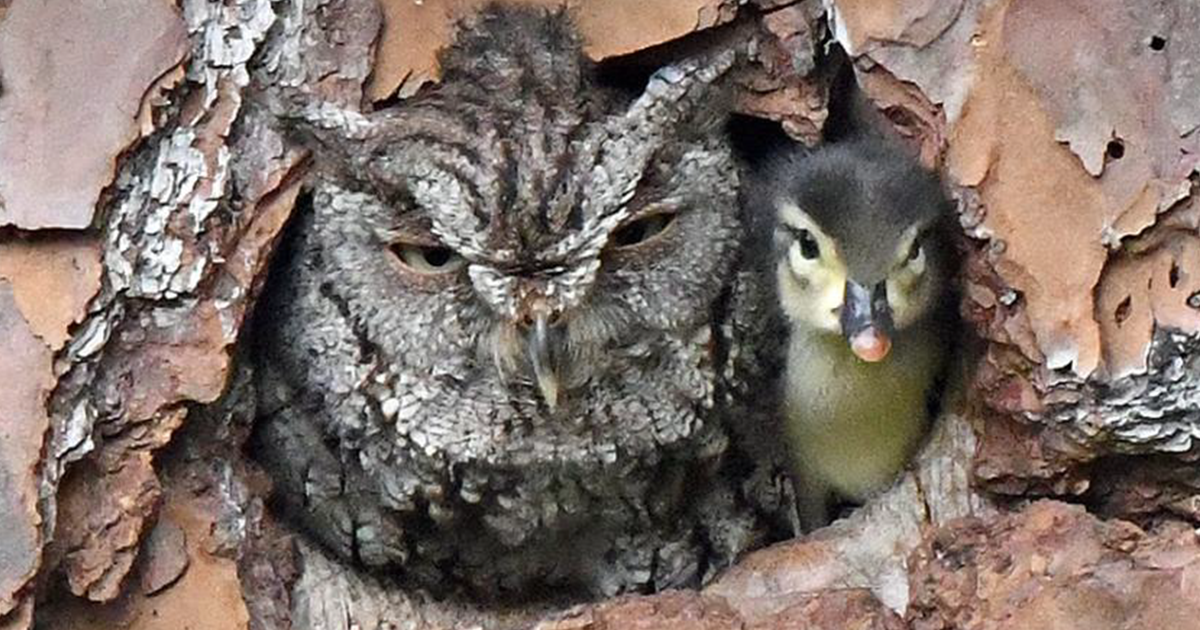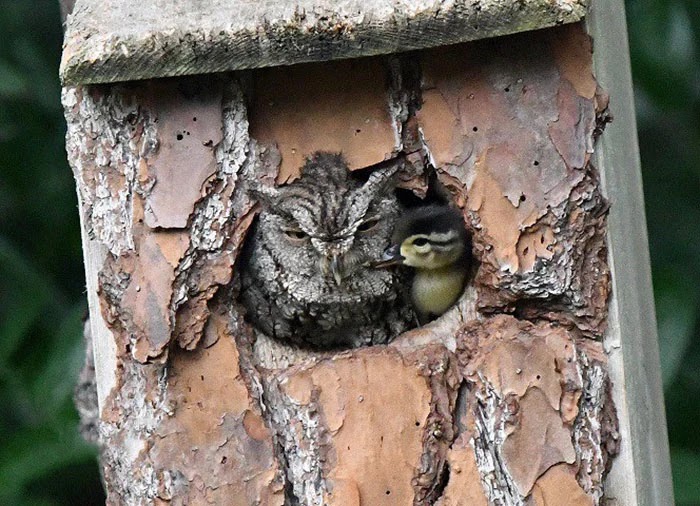
Artist and photographer Laurie Wolf was recently in her backyard in Jupiter, Florida, inspecting all the different birdhouses (also common as nesting boxes) she and her family have put together. Surprisingly, Laurie noticed a mother wood duck moving her egg.
“The mother duck removed the egg from one of our nesting boxes and flew toward this other box with it in her bill,” the woman said. “We believe that the duck moved the egg because that nest had been raided – there were eggshells at the bottom of the pine tree where the box is.”
One month later, the duckling appeared in the nesting box with the owl. Laurie got concerned that the predatory owl might eat the duck chick, so she contacted a bird expert. It turned out, she was right to be fearful. A wildlife sanctuary in her area agreed to look after the duckling if Laure caught it. But just as she attempted to capture it, the bird jumped out of the nest box and ran away to a nearby pond.
“A bit later, the baby duck was in the hole by itself, calling for the parents,” Laurie posted on Facebook. “We believe they heard each other because it suddenly left the box and made a beeline for the back fence and our neighbor’s pond where the woodies have been hanging out.
“Also, we had seen a female wood duck – about three or four weeks ago, remove a duck egg from a box that had been raided by something, and fly off toward this box with it.”
“We lost it in the trees and didn’t want to disturb it. But we believe she put it in this box and the owl hatched it.”
Wolf and her family have not seen the duckling ever since. “The pond nearby is on our neighbor’s property and is very hidden.”
As reported by National Geographic, wood ducks have been recorded living with eastern screech owls in the past too. “It’s not commonly documented, but it certainly happens,” said Christian Artuso, the Manitoba director of Bird Studies Canada, that made a similar observation in 2005 while he was studying eastern screech owls for his Ph.D.
Wood ducks are known to practice brood parasitism. That means that parent ducks will sometimes lay an egg or two in someone else’s nest. For instance, another wood duck or some other related species. “You could think of it as not keeping all your eggs in one basket,” Artuso continued. “If you spread your eggs out, then your chances of passing on your genes are increased slightly, especially if you lose your own eggs to a predator.”
“We know this occurs, but we really don’t know the frequency,” he concluded. “So I was happy to see another example of this.”
More info: Facebook | wildworksgallery.com








Image credits: Laurie Wolf, Michael McCarthy, Danielle Brigida
People had a lot to say:





























COMMENTS